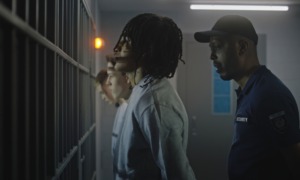We’ve been hard at work here on a crazy cover story for the May issue of Youth Today, and a few other projects (including the piece about compliance we posted yesterday). It’s been awhile since we did the Notes, so here’s a quick-hit version with some headlines and things that caught our eye over the past couple weeks.
***OJJDP has issued a solicitation for the Community-Based Violence Prevention program, which was proposed by Obama. Four grants for about $2.2 million will be given out for ventures that are very similar to what Rep. Bobby Scott (D-Va.) would want to heavily fund under the Youth PROMISE Act, which remains in the hopper at the House Education and Labor Committee. Another solicitation was issued to evaluate the program; deadline for both is June 18.
***Luzerne Update! Michael Conahan, one of the two judges indicted for taking kickbacks in connection with the construction and operation of two private detention centers, has entered a new plea agreement on federal racketeering charges. The other defendant, Mark Ciavarella, is “going to trial,” says his lawyer, Al Flora.
Our two cents: Ciavarella is nuts. He and Conahan could get by in the civil case against them, but to push the criminal trial to a verdict is insane. A judge threw out a plea signed by both judges because they refused to take responsibility for what they did and refused to cooperate with probation officials preparing a pre-sentence report. Under that plea agreement, both judges would have received about seven years in prison. Now Ciavarella could be facing 25 years if convicted.
Conahan will be the third person in the scheme to plead guilty, including two developers. And the judge has already rejected their claims that part of the money paid to the judges was a finder’s fee.
***Still no opinion from the U.S. Supreme Court on the two cases pertaining to juvenile life without parole. Next date the court may release opinions is May 3. Very likely an opinion on this issue is happening in May; the court has dealt with all of the cases it heard in October and the LWOP cases were argued in November.
***On Juvenile Justice and Delinquency Prevention Act reauthorization: no bill has been submitted on the House side in the week after a hearing was held by the Education and Labor Committee to discuss the subject. Heard this though: the bill is likely to be identical in structure to the Senate version (which has the support of the White House) with some amendments.
One amendment might be language about where juveniles who are transferred into the adult system are held; possibly a mandate that they be held in juvenile facilities until they turn 18. This is an idea embraced with virtual unanimity by national-level advocates, but JJ Today has heard that this could be a really tough adjustment for some state-run and private detention centers. If a facility is accustomed to handling juveniles within a certain range of offenses, and suddenly have to incarcerate accused murderers and others, that might warrant higher security.
It might be the right thing to do, but it certainly won’t be easy.
***Colorado is poised to start educating any juveniles awaiting trial as adults in the state, reports Joseph Boven of the Colorado Independent. Opposition to the bill that would guarantee this stems from the fact that it would draw resources and teachers from local school districts This is just speculation, but it’s possible that with a mandate to educate juveniles in adult facilities, systems would respond by opting to place all pre-trial juveniles in juvenile facilities. Education is already a mandate there, so no additional money or resources are expended.
***The Chicago Tribune hosted a forum to discuss what to do about all the killing of young people in the city. CNN’s Sanjay Gupta reported on the issue as well this week. One of the few programs people feel has been effective in curbing violence in the city is CeaseFire, which uses an amalgamation of faith groups, ex-offenders and nonprofits to contain conflict in high-crime neighborhoods.
The May issue of Youth Today covers an attempt to replicate CeaseFire in another city that has developed a reputation for murder, Baltimore. Check back on Monday for that, but the gist is: It is a program that has produced results when it’s run right. But it is VERY challenging to run right.
Chicago’s struggle with violence is hardly a new thing, by the way. Add Devil in the White City by Erik Larson to your summer reading list … fascinating book, and it really drives home that Chicago came into this world as a distinctly violent place.
***Cool story on teen peer courts by Daniel Wood of the Christian Science Monitor. This approach to juvenile justice appears to be picking up steam, although the funding for it in a lot of places that use it is fickle. Teen courts were a major focal point of the discussion at this month’s Coalition for Juvenile Justice conference, particularly in regard to teen courts’ ability to dispense with school-related crimes that needn’t be placed on the juvenile court docket.






























